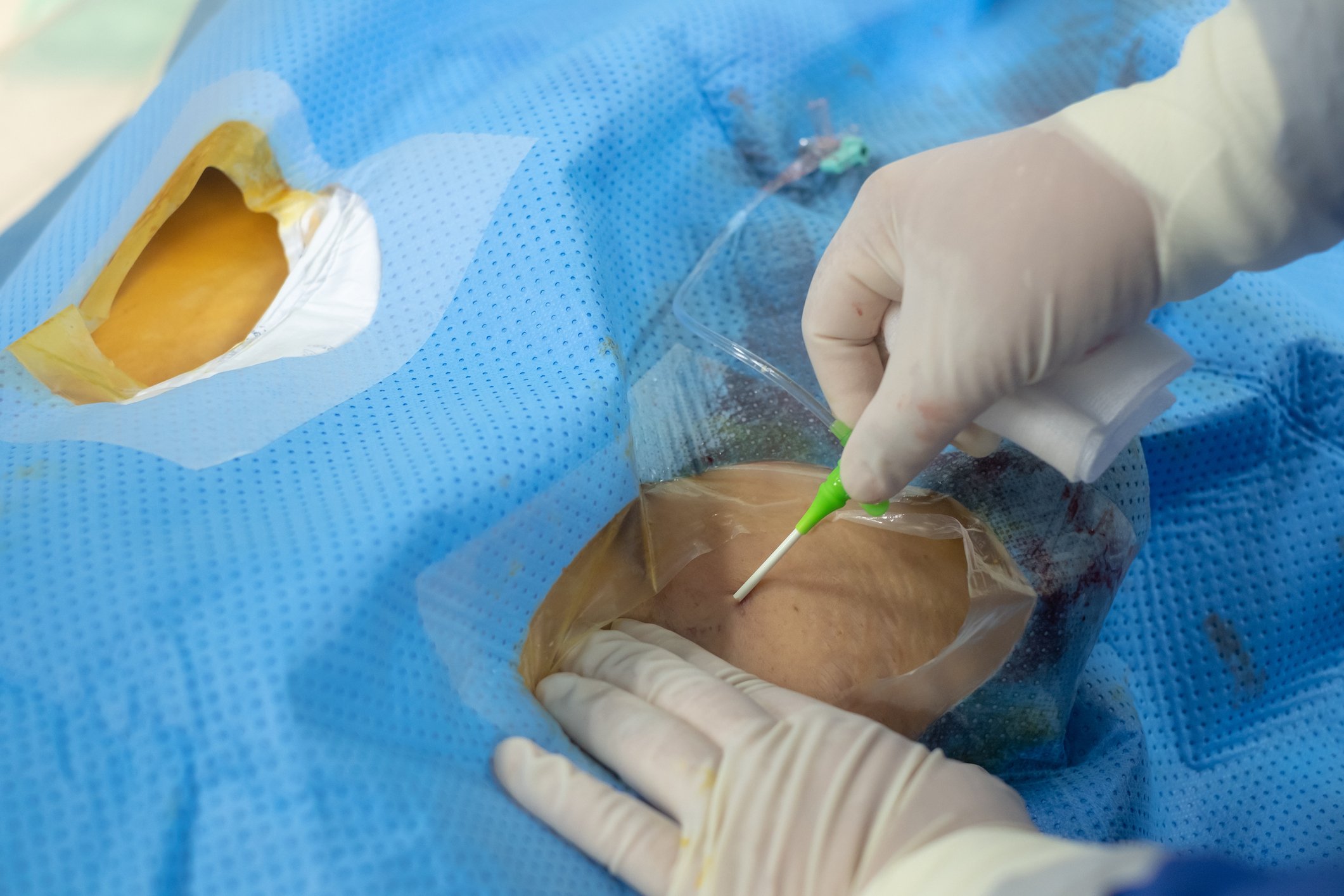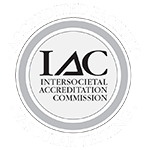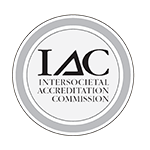
An angiogram is a vascular procedure that is commonly performed when you have a blocked artery going to the leg and it is causing symptoms such as pain or wounds in the foot or leg. It is a minimally invasive way to both identify blockages in the leg arteries as well as treat them. Treatment includes ballooning open the blockages and possibly stenting the blockages open.
Diagnostic and Therapeutic
The angiogram is an X-ray procedure that threads tiny wires through the arterial system and injects iodine dye so X-ray images can identify blockages. With this insight and feedback, a vascular surgeon can then choose the best therapy for you if needed – balloon angioplasty or a stent placement.
Angioplasty means using a balloon to open up the blockages. The wire that is thread through your femoral artery is equipped with an inflatable balloon. This balloon can be inflated to expand the artery and shrink the blockage. The balloon is then deflated and removed while keeping the wire in place across the area that has been treated. Next, contrast dye is injected to determine the result. Treatment is considered a success if blood flow is improved and less than 30% of the blockage remains. If the vessel is still considerably constricted, the vascular surgeon may consider placing a stent.
Stents are used to keep the artery open. Stents are generally placed after balloon angioplasty when there is residual narrowing or insufficient blood flow in a treated vessel. Stents in the leg are considered a permanent implant but should not be used if you have a metal allergy since they are made of a nickel-titanium alloy (Nitinol), a memory-shaped metal. This alloy has unique properties and uses, most commonly being that it can be made to “remember” or change shape depending on body temperature. These stents are flexible so that damage from activities that involve your legs is minimized.
For arterial blockages that cannot be treated minimally invasively with angioplasty or stenting, the next option is a surgical bypass.
Are there Risks to Performing an Angiogram?
Angiograms are typically performed while you are sedated, though can also be done without anesthesia. The procedure may last 30 minutes or up to several hours, depending on how extensive the blockages are.
All invasive procedures (however minimal) can have complications. While the risk of an angiogram is low it is not zero. The most common complications are related to the arterial access site (the groin artery where we get puncture in order to gain access into the arteries).
Some of the common issues are:
- Bruising at the point where the artery was entered
- Pain and some bleeding may occur
- Blockages or leakages, while rare, may occur to the artery
- Allergic reactions to the iodine may arise
- Embolisms could occur, also very rare, during the angioplasty or stenting process where part of the arterial blockage breaks off and travels to other arteries in the body
- Injury to the kidney secondary to the contrast dye that is used for the procedure
Working with a board-certified vascular surgeon, you will discuss the procedure ahead of time and evaluate any of the risk factors that may be involved. Angiograms are considered outpatient procedures so you will most likely go home the same day. As sedation is generally used in the process, be sure to have someone else drive you home that day. And, when you are home, you will need rest and avoid heavy lifting for a couple of days afterwards.
Want to learn more? Schedule an appointment today at one of our 5 convenient locations in Northern New Jersey.








_2.jpg)